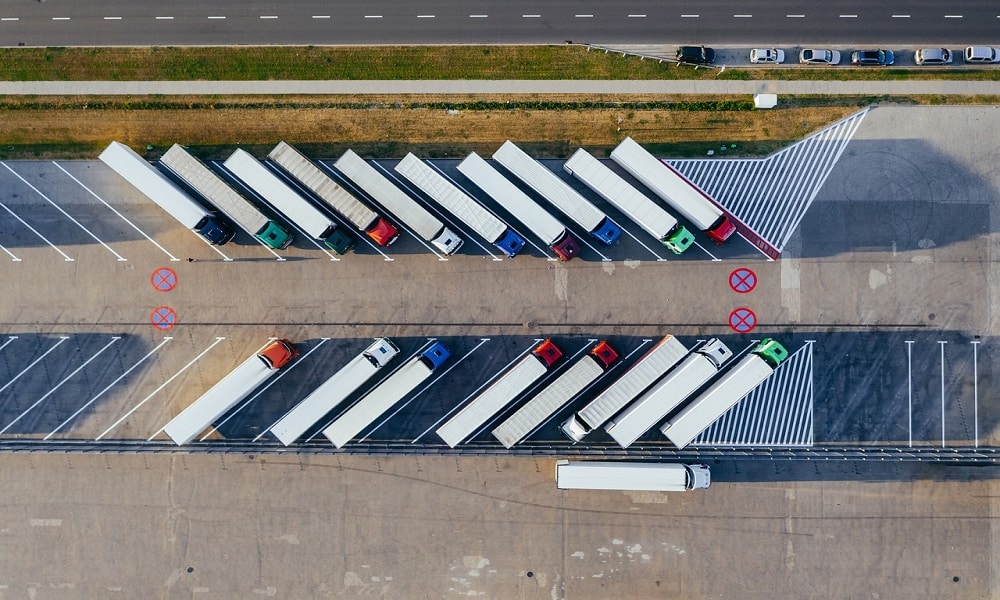Having a trucking business is no small feat, and starting it isn’t one either. This is an industry with really high stakes and every mile on the road is both an opportunity and a risk. Accidents happen, cargo can get damaged, and a lot of things can happen that can make your job way harder than it needs to be and that can drain your bank account.
If you don’t have insurance, your livelihood is in danger and it can end up crippled before one of your trucks even leaves the garage. Insurance isn’t just an expense somebody added without reason. If things go wrong, insurance is what will keep your business going.
So, let’s say you’ve decided on getting insurance and now you tap yourself on the back for making a smart decision. But, wait. What kind of insurance should you get? There are so many policies out there, how do you choose without having a mental breakdown?
Wrong coverage can devastate your business, so keep reading and we’ll tell you all you need to know on how to choose correctly and protect yourself.
Insurance Policies Every Trucking Company Needs
The right coverage will protect you; the wrong one will put your company at risk. We’ve prepared a list of policies you’ll need, but keep in mind that regulations vary from state to state.
Some of these fall under federal rules, but do your homework and research thoroughly. You can even ask an attorney that specializes in truck accidents for advice, but again – make sure they’re in your state. A truck accident lawyer in Joliet, IL won’t give you identical information to the ones you’ll get in Hoboken, NJ.
1. Primary Liability Insurance
This insurance is required by law and every trucking company has to have it. It covers damage to other people and property when the truck driver is the one that caused the accident. According to federal rules, you’ll need at least $750,000 in coverage, but if you haul hazardous materials, that amount will likely be a lot higher.
Without this insurance, you can’t legally work and any accident will cause a massive loss that you’ll have to pay for yourself.
2. Cargo Insurance
This insurance covers the goods your trucks are transporting. If the cargo gets accidentally damaged or stolen, this policy will compensate for the loss. Keep in mind that different types of cargo have different levels of risk, so your coverage could vary.
For example, if you haul fragile or hazardous items and materials, you’ll need higher coverage limits. A lot of shippers will also need proof of cargo insurance before they agree to work with you, so unless you want to lose business, this is a must.
3. Physical Damage Insurance
Trucks and trailers are expensive, so if something happens (natural disasters, theft, damage), it will cost you a lot of money without insurance.
It will cover the cost of repairs and replacement if your equipment is damaged. There are two types of coverage – collision insurance, which pays for damage from crashes, and comprehensive insurance, which will cover incidents like theft or damage that results from weather.
If you need to take out a loan to buy your trucks, your lender will need you to have this insurance.
4. Bobtail Insurance
This insurance will cover trucks with they’re driven without a trailer and not on a job. Even when your truck isn’t hauling cargo, it doesn’t mean that nothing can happen to it. Now, you might say “Oh, I have primary liability insurance, I’m all set.” But primary liability won’t cover incidents that happen when your truck isn’t officially working.
Say a driver’s going home after he or she has made a delivery and then gets into an accident. So technically, not working hours; or are they? Will primary liability cover it? Absolutely not. However, bobtail insurance will. Trucks travel a lot between jobs, and this policy is something you shouldn’t be without.
5. Workers’ Compensation Insurance
If one of your workers gets hurt on the job, this insurance will cover it. Trick driving is very risky and drivers are constantly in danger of road accidents and injuries that come from repetitive strain. This insurance will pay for medical bills, lost wages, and the cost of rehab. Most states will require all trucking companies to have workers’ comp, and for those that don’t – they’ll get fined.
What’s even more important is that this insurance will show your drivers that you care about their safety, which will keep them happier and boost morale.
6. General Liability Insurance
General liability covers accidents and injuries that aren’t related to driving. This could be a client slipping and getting hurt while they’re in your office or your truck could damage someone’s property during delivery.
Also, it will cover legal fees and settlements if your company gets sued for incidents like these.
Conclusion
The main point of the article? If you’re starting a trucking company, make sure you have insurance. The second main point of the article? Make sure you choose the right coverage.
Insurance is one of the most important investments you can make and without it, you’ll be paying out of pocket for accidents; that is, if you’re lucky. If you’re not, you’ll get fined because you’re not complying with laws and regulations, and that will be an even bigger expense.
It’s really not that hard to see why you need insurance. Frankly, it’s common sense.


